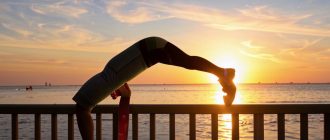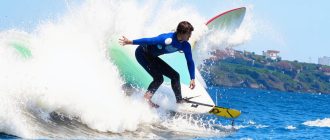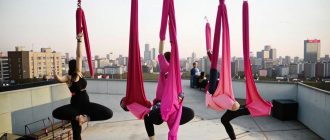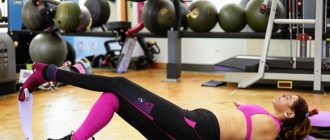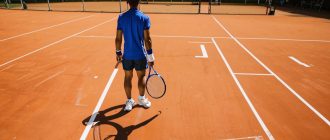This week the street thermometer columns will inexorably creep up again. But that’s no reason to cancel training. When the heat of hell hits you, you have to learn to adapt to the weather.
Sergey Kuzminsky, a running coach and World Class fitness trainer, told us how to train under the scorching sun without getting a heat stroke.

Sergey Kuzminsky
Running coach, World Class fitness trainer
Expert of “Championship.com”
Watch the weather
As soon as the air temperature exceeds 30 degrees, the load on the body increases significantly. Pulse rate increases, blood vessels dilate. That’s why working out in the heat can be dangerous.
Do not exercise directly under the scorching sun and go into the shade. The trainer recommends running and exercising early in the morning or late in the evening when the heat is not so intense.

Choose appropriate clothing
For training in the summer, light clothes in light colors are suitable. Clothing with cooling technology is ideal. Clothing with mesh inserts, which keep your body temperature constant even when the temperature outside is high, is also a good way to beat the heat.
In sunny weather, it’s best to hide your neck, shoulders and head from the sun. Choose something simple to work out in, such as a T-shirt and shorts. You can wear special clothing with UV protection. This option prevents direct sunlight and at the same time does not warm, but, on the contrary, maintains an optimal body temperature.

Don’t forget to warm up
According to a running coach, you should pay as much attention to warming up in summer as at any other time: Before any physical activity, warming up is very important to activate all muscles and joints, prepare them for further loading and improve neuromuscular coordination.
Drink enough water
Water regulates body temperature, and in hot weather it evaporates many times faster. This can lead to dehydration and thus trigger heat stroke. To avoid this, be sure to take water for training.

Sergey Kuzminsky
Running coach and World Class fitness trainer
During physical activity we sweat a lot, and in hot weather sweating increases. That is, the body loses fluid even more than usual. In order not to suffer from dehydration, it is necessary to replenish water reserves, because we consist of about 60% of liquid.
Exchange processes in this case will work properly, and this is very important. In hot weather you need to drink a little more than in cool weather. If it is usually 25-30 mg per kilogram of weight, then in summer these figures reach up to 35 mg per kilogram of weight.
And another important point: you need to drink at will, you should not do it by force. In this case, it is better not to wait for a strong thirst, and drink a little in advance.
Do not force yourself to eat
In the heat many people have a reduced appetite, and therefore the need for calories too. You can safely refuse foods high in fat, sugar and give preference to seasonal ones.
The trainer notes that if you do not want to eat, you can slightly reduce the daily calorie intake and choose foods that are digested better. For example, eat more fruit and get vitamins at the same time.

Give preference to summer sports
Riding a bicycle is ideal in hot weather. The fresh breeze will be good at speed. Running and boating are also quite suitable. Rowing with oars is a good type of cardio exercise.
Most importantly, take water with you on your jog or bike ride. The trainer also advises to buy isotonic – a drink that maintains water-mineral balance. It will replenish the loss of important substances during prolonged exercise.

Pay attention to body signals
In order to train in the heat without risk to your health, it is important to monitor your health. In summer there is a double load on the body – an increase in body temperature by just 1 degree increases the heart rate by 10-12 beats per minute. That is, the heart begins to work more actively, and this can adversely affect the overall condition. Headaches, dizziness, nausea – all this is a reason to postpone training.
The trainer warns that if there are heart problems, first of all, you need to consult a doctor. Also avoid high-intensity interval training, where the heart rate accelerates to 85% of maximum.

